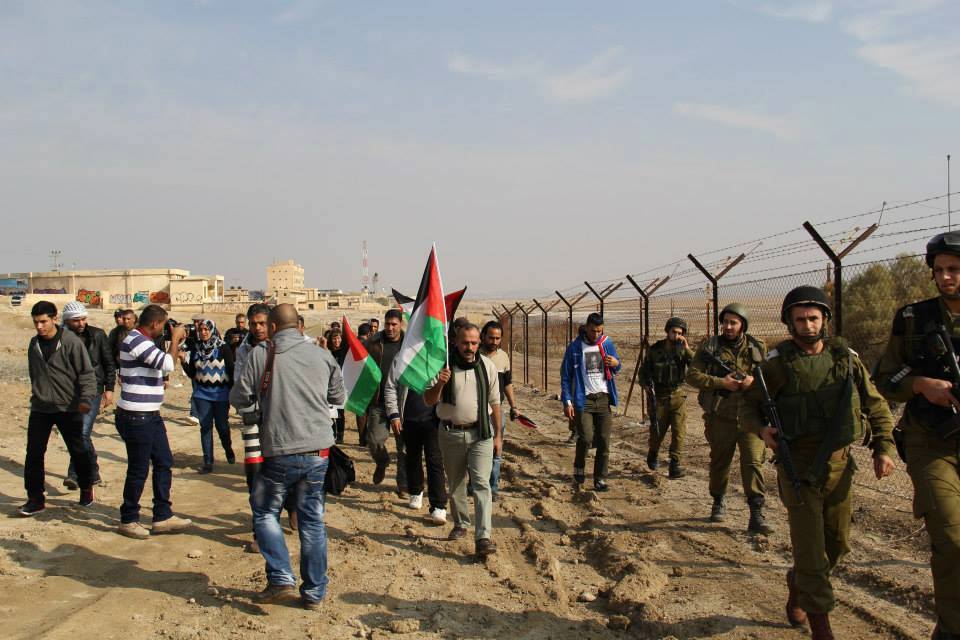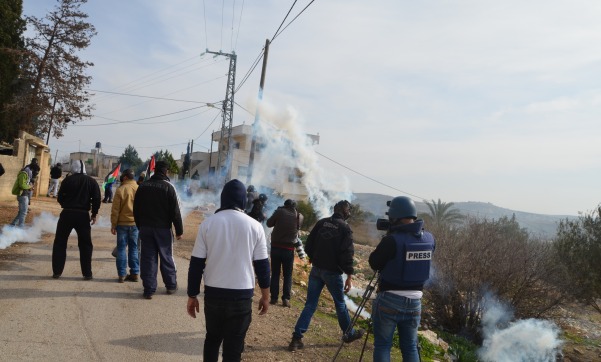Category: Reports
-
One Palestinian arrested during demonstration in Kafr Qaddum
03rd January 2014 | International Solidarity Movement, Nablus Team | Kafr Qaddum, Occupied Palestine Today, at the weekly Kafr Qaddum demonstration, Israeli soldiers and border police violently suppressed the protest and arrested a Palestinian citizen. Clashes between Palestinian youth and Israeli soldiers erupted after the Friday prayer when the Israeli military began bulldozing pre-made stone barricades…
-

Protest march towards the Dead Sea
03rd January 2014 | International Solidarity Movement, Khalil Team | Jericho, Occupied Palestine On the 1st January, at approximately 12pm, 40 Palestinian and international activists attempted to march towards the Dead Sea in an effort to protest against the proposed Israeli bill to annex the Jordan valley. Israeli forces prevented the demonstration from reaching the shore, in response the…
-

85-year-old Saeed Ali Gasser from Kafr Qaddum, killed by suffocation from tear gas
02nd January 2014 | International Solidarity Movement, Nablus Team | Kafr Qaddum, Occupied Palestine Yesterday, Wednesday 1st January, Israeli forces raided the village of Kafr Qaddum during an anniversary march to commemorate the start of the Fatah movement, 49 years ago. Israeli soldiers and border police shot many tear gas canisters towards the villagers and into…

